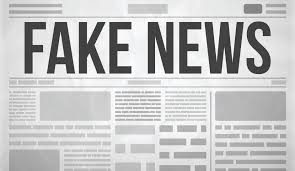Has Janet Yellen fallen victim to fake news? Interest rates have been predicted to increase this year but they have barely budged. Why? We keep hearing that rates will increase and inflation will continue to accelerate, but Janet Yellen has stated in various federal reserve speeches that currently there are various “transitory” or “temporary” items holding back inflation. 3 variables holding down interest rates
Is Janet Yellen smoking the fake news? How long can something be temporary or “transitory”. It seems like we have been “transitory” for many years now! Unfortunately, we all know that we can’t be in transition forever, either the train leaves the station or doesn’t leave the station.
Sorry Janet, in this case the inflation train is stuck at the station and is not “transitory”. There are three variables holding the inflation train at the station: commodities, wages, and the business landscape.
First commodities are languishing with oil/gas at their lowest level in years. What is causing the lack of appreciation in commodities? Efficiency is the leading driver. Autos, homes, etc… are becoming more efficient. For example, think of the power needed for lighting. With modern lighting instead of using 75 watts for a recessed light, the same amount of light can be had with an LED bulb for 3 watts. This in turn results in less power demand from the electric company. The same is occurring on the auto front as cars become substantially more efficient. Furthermore, renewables are driving the prices of electricity down as well as more consumers opt for solar installations. I don’t see commodity prices spiking anytime soon in order to drive inflation.
Second, wage growth has continued to be held back. Yellen has stated on may occurrences that wages will increase and ultimately drive inflation. Unfortunately, this is likely not going to happen. Seattle is in the midst of a “grand experiment” to increase the min wage substantially and therefore increase the take home pay of workers. A recent University of Washington study shows that take home pay increases until a “tipping point” is reach and after that point, the take home pay of workers actually declines. (Read the full article) How is this possible? As wages increase businesses look at alternatives including outsourcing, automation, etc.. that decrease the labor amount. For example think of Domino’s pizza. In the past you would call in and speak to a person to order a pizza. Now you can order online twice as fast thereby greatly reducing the number of people needed to answer the phones. This same shift is happening throughout the economy which will counteract any large movements in labor costs.
Finally, the business landscape is rapidly changing and greatly reducing price increases on various products. Think of 10 years ago, if you wanted a widget you would go to the store, pick out a widget, maybe talk with a saleperson, checkout and go home. There were multiple touchpoints. Now to buy a widget, you would likely go on Amazon or google to read reviews, find the lowest price, press a button and the widget shows up at your door. The item was drop shipped directly from the manufacturer to your house without all the touchpoints saving time, labor, and ultimately money. This radical change in consumption habits has altered the business landscape. No longer do you need staff waiting to sell a good that is sitting on the shelf at Macy’s when the process has been totally automated. The supply chain efficiency has gone from a focus of manufacturers (raw materials) to the retail industry greatly reducing costs both for the retailers and the consumer. This efficiency has kept prices (inflation) very low for many consumer goods and will continue to do so as automation continues to progress.
The inflation train is stuck at the station and likely will not depart any time soon. Janet Yellen needs to realize that the inflation game cannot be transitory forever as commodities, the lack of wage growth, and the changing business landscape will ensure that the inflation train does not get going anytime soon.
Resources:
Written by Glen Weinberg, COO/ VP Fairview Commercial Lending. Glen has been published as an expert in hard money lending, real estate valuation, financing, and various other real estate topics in the Colorado Real Estate Journal, the CO Biz Magazine, The Denver Post, The Scotsman mortgage broker guide, Mortgage Professional America and various other national publications.
Fairview is a hard money lender specializing in private money loans / non-bank real estate loans in Georgia, Colorado, Illinois, and Florida. They are recognized in the industry as the leader in hard money lending with no upfront fees or any other games. Learn more about Hard Money Lending through our free Hard Money Guide. To get started on a loan all they need is their simple one page application (no upfront fees or other games).

